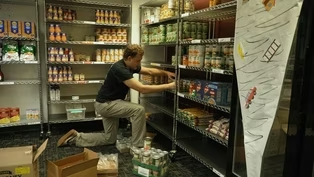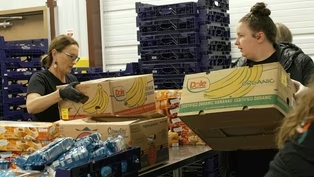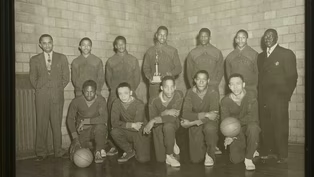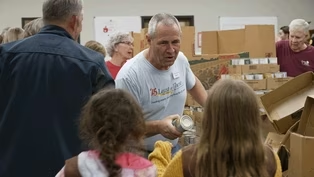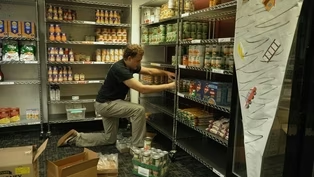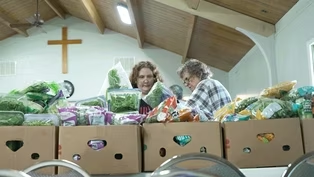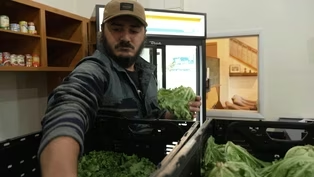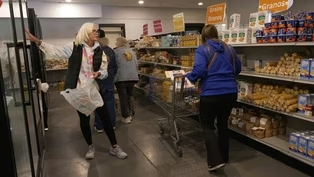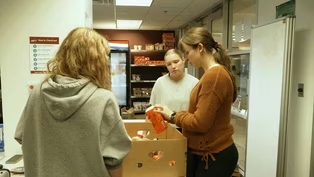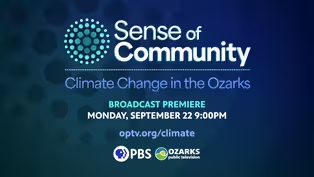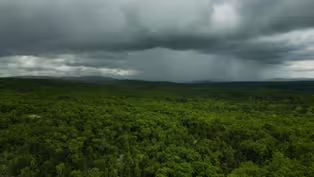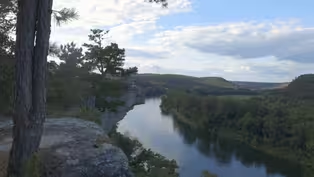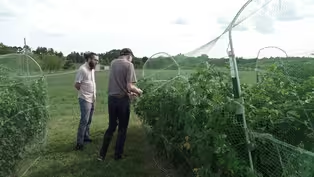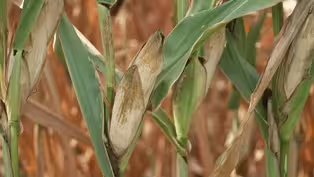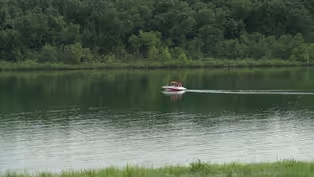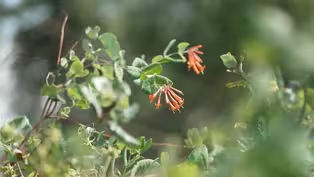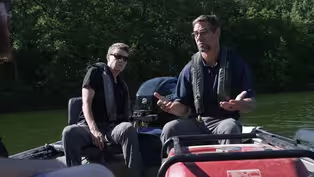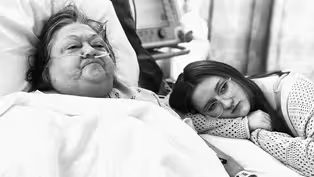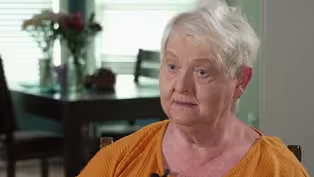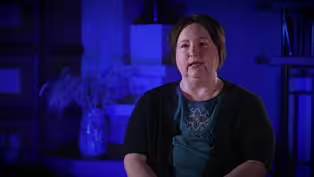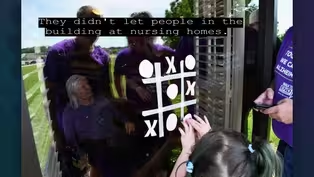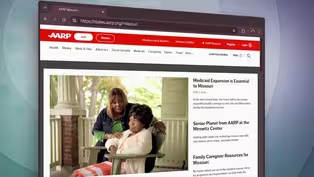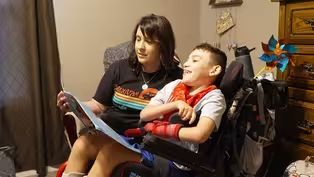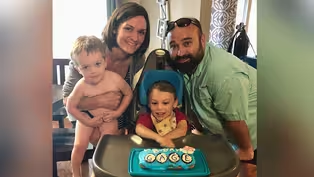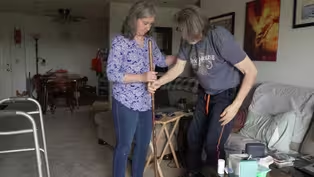The Power of Presence
Clip | 1m 58sVideo has Closed Captions
COVID isolation impacted personal connection's role in health and happiness
Dementia care specialist Mark Applegate recounts how COVID-era isolation affected his mother while she was receiving hospice care in a nursing home, and how personal connection can be transformative to our health and happiness.
Problems playing video? | Closed Captioning Feedback
Problems playing video? | Closed Captioning Feedback
The Power of Presence
Clip | 1m 58sVideo has Closed Captions
Dementia care specialist Mark Applegate recounts how COVID-era isolation affected his mother while she was receiving hospice care in a nursing home, and how personal connection can be transformative to our health and happiness.
Problems playing video? | Closed Captioning Feedback
How to Watch
is available to stream on pbs.org and the free PBS App, available on iPhone, Apple TV, Android TV, Android smartphones, Amazon Fire TV, Amazon Fire Tablet, Roku, Samsung Smart TV, and Vizio.
NARRATOR: Mark Applegate is a dementia care specialist for senior age in Springfield.
He was also a caregiver for his mom for years.
MARK APPLEGATE: In 2021, Mom was on hospice care again and COVID was happening pretty hard.
They called us in one day and the nursing home and said, it looks like your mom's going to pass away this weekend.
She had some seizures and she's really struggling.
We'd been doing window visits for six months at this point.
They didn't let people in the building at nursing homes.
They said, in this circumstance, we'll go ahead and let you-- we set aside a room and we used a lot of Germ-X on the room and stuff to make sure it's safe for you to come in.
You can spend the last time until she passes away with her.
Me and my siblings went there and hung out with her.
We expected this to be our last weekend with her.
We played the old songs on our phone, laughed, and talked.
And she was awake.
She wasn't in a coma, but she was just doing poorly.
Six, eight, 10 hours passed.
They said, well, you spend the night here.
It's fine.
They gave us a roll-out bed.
We slept on the bed and visiting and talking.
And day two is here.
And they're still coming by like, she seems to be not passing away, right now she's not.
They sent us home on day three and said we're sorry.
And we're glad to be able to let you spend time with her, but we have to send you out again because of COVID.
And she lived another two years.
One thing you can learn from that story is she was probably dying partially because of isolation, because she had only seen us through the window for-- after seeing us every single day for years, isolation was legitimately killing her, not just theoretically.
She was wearing out.
But it also shows the power of being able to love on them and to share those stories and share life and stuff.
Preview | 30s | Ozarks nonprofits strive to make sure no one goes hungry (30s)
Video has Closed Captions
Clip | 2m 15s | Ozarks Food Harvest partners with another local nonprofit to provide fresh produce for those in need (2m 15s)
Video has Closed Captions
Clip | 2m 30s | Joplin area residents come together each week to help a local nonprofit feed their community (2m 30s)
Video has Closed Captions
Clip | 2m 10s | A food pantry in Ozark provides, food, education and resources to those in need (2m 10s)
Video has Closed Captions
Clip | 2m 30s | Families in the Ozarks face difficult choices between buying food and paying rent (2m 30s)
Video has Closed Captions
Clip | 2m | Volunteers make sure unused crops get to those facing hunger (2m)
Video has Closed Captions
Clip | 2m | Community fridges across Springfield are helping to feed those who would otherwise go hungry (2m)
Video has Closed Captions
Clip | 2m 20s | Christian Action Ministries works to fill a need in Stone and Taney Counties (2m 20s)
Video has Closed Captions
Clip | 2m 20s | The Bear Pantry challenges conceptions of what food insecurity looks like (2m 20s)
Video has Closed Captions
Clip | 20s | Climate Change in the Ozarks - Broadcast Premiere Sept, 22 at 9pm (20s)
Video has Closed Captions
Clip | 5m 30s | Experts weigh in on the impacts of climate change on the Ozarks and suggest possible solutions. (5m 30s)
Video has Closed Captions
Clip | 5m 45s | Climate change creates greater rainfall in the Ozarks, negatively impacting our rivers. (5m 45s)
Video has Closed Captions
Clip | 3m 10s | Ozarks researchers work diligently to provide solutions to agricultural challenges (3m 10s)
Video has Closed Captions
Clip | 3m 48s | A local farmer describes the challenges of growing crops in a changing Ozarks climate. (3m 48s)
Video has Closed Captions
Clip | 3m 50s | As a growing population in the Ozarks consumes more water, the need for new sources arises. (3m 50s)
Video has Closed Captions
Clip | 3m 2s | Native plants serve as a unique solution to the obstacles faced by Ozarks wildlife and habitat. (3m 2s)
Video has Closed Captions
Clip | 3m 51s | Floating wetlands present a unique solution to the problem of algal blooms in the Ozarks. (3m 51s)
Video has Closed Captions
Clip | 1m 45s | Young caregivers, often driven by gender norms, face challenges but grow personally (1m 45s)
Awareness Rising: The Future of Caregiving
Video has Closed Captions
Clip | 1m 58s | Experts stress caregiving awareness; hospice care users share how it deepened their bond (1m 58s)
Video has Closed Captions
Clip | 2m | Caregivers reflect on emotional toll, stress rest, reflection, and daily joy to reframe caregiving (2m)
Video has Closed Captions
Clip | 1m 58s | COVID isolation impacted personal connection's role in health and happiness (1m 58s)
Tackling Missouri’s Dementia Crisis
Video has Closed Captions
Clip | 1m 50s | 130,000 Missourians have dementia; 250,000 unpaid caregivers face isolation, service gaps. (1m 50s)
Redefining Care: Finding Support and Recognition
Video has Closed Captions
Clip | 1m 50s | Caring for a disabled child brings emotional, financial hurdles; need for better access to support (1m 50s)
Video has Closed Captions
Clip | 1m 58s | Caregivers share emotional struggles while experts suggest therapy, and peer support for stress. (1m 58s)
Video has Closed Captions
Clip | 1m 50s | Caregivers often experience depression, fatigue, and medical crises, and emotional strain (1m 50s)
Providing Support for PBS.org
Learn Moreabout PBS online sponsorship
- News and Public Affairs

Top journalists deliver compelling original analysis of the hour's headlines.

- News and Public Affairs

FRONTLINE is investigative journalism that questions, explains and changes our world.












Support for PBS provided by:
